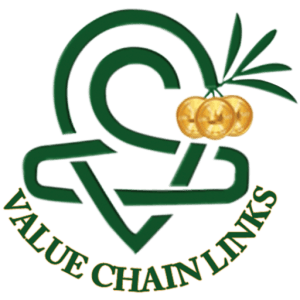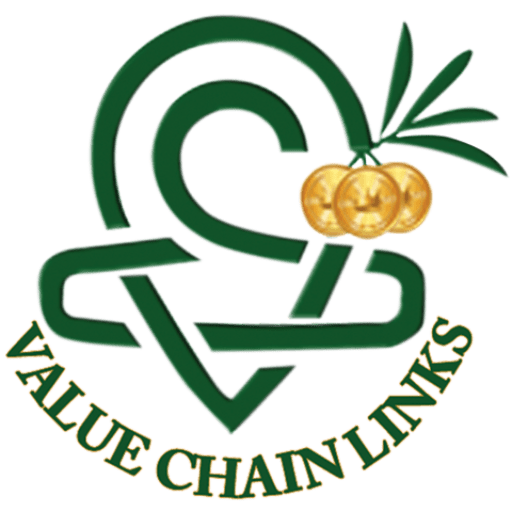WHY IS THIS FARMER AFRAID OF RAIN, AND WHAT CAN BE THE CURE FOR HIS FEAR?
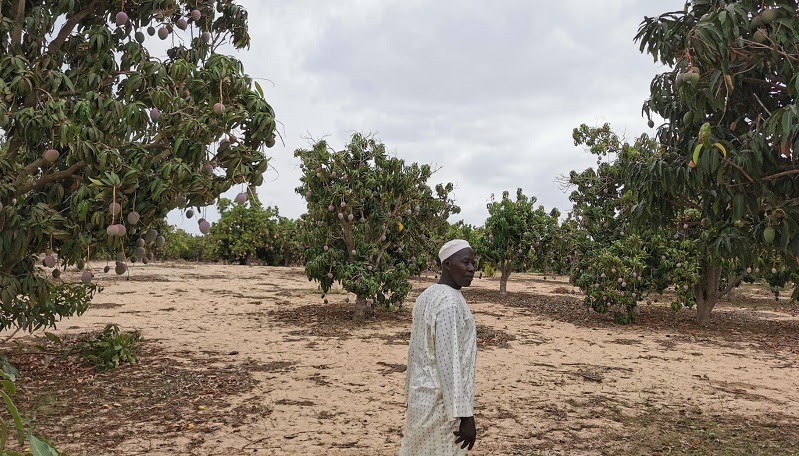
BY DR NIMROD
The farmer in the above picture is Mr. Pape MBENGUE. He has a family; he is intelligent, gentle, friendly, and kind. He grows mangoes and…he is afraid of rains!
We are not talking about rains that turn your house into a bath, but regular normal rains, that every farmer is looking to have.
Since Mr. MBENGUE’s orchard is in an arid area, and he is not using irrigation, it makes even less sense that he would be afraid of rain.
A farmer afraid of rain is like a fish fearful of water, a lion scared of gazelles, or a bird fearful of flying. It simply doesn’t make sense. Or is it!?
Before I continue any further, I would share with you that Mr. MBENGUE is not alone; there are millions of farmers just like him who suffer from “rain phobia.”
BE ZIGMOND FREUD
Be like Freud; start by learning the history of your patients/clients before you suggest any treatment.
Nearly two months ago, when I first met Mr. MBENGUE in his village, I sat down with him and his fellow mango growers and interviewed them about their professional history.
It didn’t take long to find out that they lost 50% to 80% of their produce to dire fruit flies last year.
Every year Mr. MBENGUE and his friends lose 50% to 80% of their mango production and business potential due to fruit flies.
A few more questions, and Mr. MBENGUE shared with me that he knows in advance when he will lose his mangoes; it will be from the second half of July, coinciding with the rainy season.
Yes, that’s right, when the rains come, Mr. MBENGUE and his fellow mango growers need to stop harvest for export, the price of the mangoes drop, and soon after, the mangoes fall to the ground, infested with fruit flies’ larvae.
When infestation hits 50% fruit damage, even buyers at the local markets are reluctant to continue buying. His annual investment, work, and hopes for a better future have “gone with the rain.”
Mr. MBENGUE, like many mango growers in Africa and Asia, lives in poverty or is living out of a meager income. For him losing a fruit is losing an essential income to keep the minimum for the existence of his family.
Mr. MBENGUE prefers to harvest his mangoes “too early” than losing a single fruit. This is the way he is rushing to harvest the fruits as early as possible.
Reality is harsh for Mr. MBENGUE and his fellow mango growers. By early harvest, Mr. MBENGUE compromises on the quality (size/weight, taste, color) and the price per kg of the fruits, and yet, he is losing 2,500 kg to 4,000 kg to fruit flies, from a total yield of 5,000 kg per hectare.
It is not just the fruits that Mr. MBENGUE is losing; he is losing 50% to 80% of his income. Hence, he sees his dreams and life aspirations for himself and his family members fading away.
When that happens, the government losses its tax income too! The entire business ecosystem of the country suffers from Mr. MBENGUE’s loss.
For Mr. MBENGUE, this income loss is the difference between having enough food on the table or not, between fixing the leaking roof or not, having light at home or not, sending the children to school/university, or starting working.
Now you know and understand why Mr. MBENGUE is afraid of the rain.
PREPARING FOR THE “DAY AFTER”
When working with farmers in an area plagued by fruit flies, I always prepare them to the next stage, saying;
“Now that we are protected by the Fruit Fly Certified Trade Zone (FFCTZ) protocol, developed by Biofeed and field applied by Green Valley, you are well protected from fruit flies. Now you need to be ready to change and start thinking differently – focus on quality, and you will get a better future!
It also means that you shouldn’t be afraid anymore of the rains.
The rains that brought the fruit flies, and hence have been your enemies, will now become your friends and will be blessed and help your fruits grow faster in size and weight.
From now on, you need to act differently.
Finally, you will be able to harvest the fruits not according to the “rhythm of the flies” but according to professional and business parameters, such as fruit maturity, size, color, market price, etc.”
I then end up with a piece of advice;
“You always complain that the traders are not coming to buy your fruits. But why should they if your produce is heavily infested!
However, I assure you that if you harvest your fruits at the best time, the exporters will stand in line to buy your fruits because you will not sell “Mangoes”; instead, the buyers will be asking to buy your “Green Valley branded export-quality mangoes.”
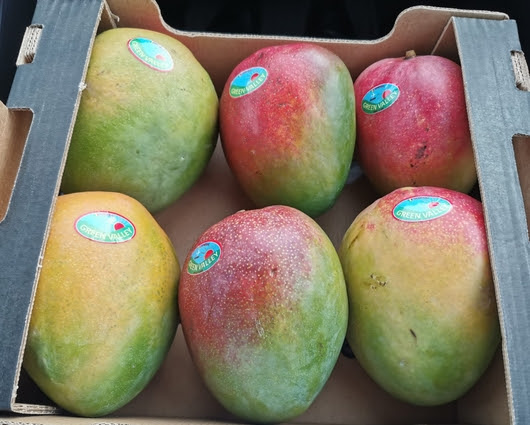
You will need to change your approach, trust me, and have more patience than usual for this to occur. Particularly, you will have to wait for the mangoes to reach their best (top) EXPORT quality.
If you continue harvesting like before, you will not fully enjoy the potential income that you can get from being protected by Green Valley’s FFCTZ protocol.”
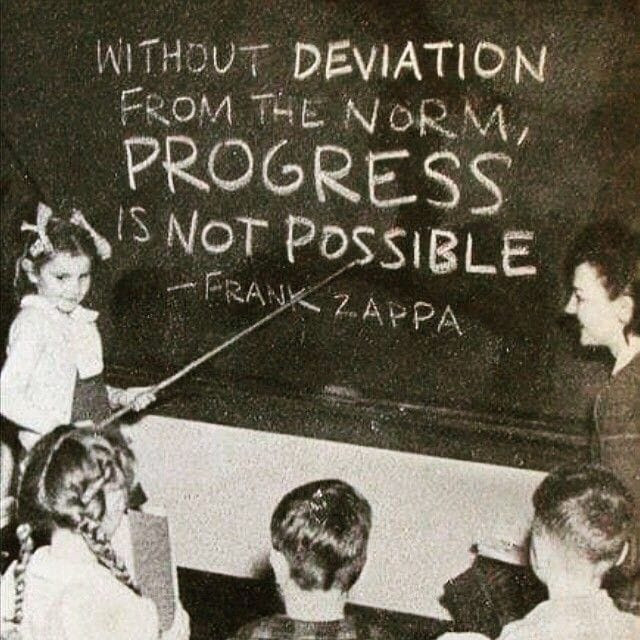
I say this, and I know that while Mr. MBENGUE and his friend’s node with their heads, in reality, they had not yet internalized and fully grasp what I said and its profound meaning for their future.
Mr. MBENGUE’s life experience, filled with endless promises and just as many disappointments and failures in managing fruit flies to increase income, has taught him one thing; trust no one! For years he knows that there is no cure for fruit flies; hence every cent you invest in their management is spent for nothing.
But now, to step forward and improve his life and the future of his family, Mr. MBENGUE and his friends will need to take their most difficult personal decision: to put their trust in me, or they risk losing everything again.
TWO MONTHS LATER
This week, nearly two months after deploying the FFCTZ protocol in Mr. MBENGUE and his neighbors’ mango orchards, we met again.
I have never seen Mr. MBENGUE in such high tension. As we stroll through the mango orchard rows, Mr. MBENGUE is pointing at fruits that should have been harvested by now.
Mr. MBENGUE is telling me that many of his neighbors already harvested most of their mangoes. However, NONE of the Green Valley growers began harvesting; they are waiting for my call.
Thirty minutes later, I stop and show Mr. MBENGUE that less than half percent of his produce is ready for harvest.
I point before Mr. MBENGUE that his mangoes are still small, too small, not mature enough, and lack the nice color they can get. These are not the high-quality fruits that we wish our consumers to buy, enjoy, and ask for more.
We look for infested mangoes among the few mature fruits and find ZERO FRUIT FLY INFESTATION!
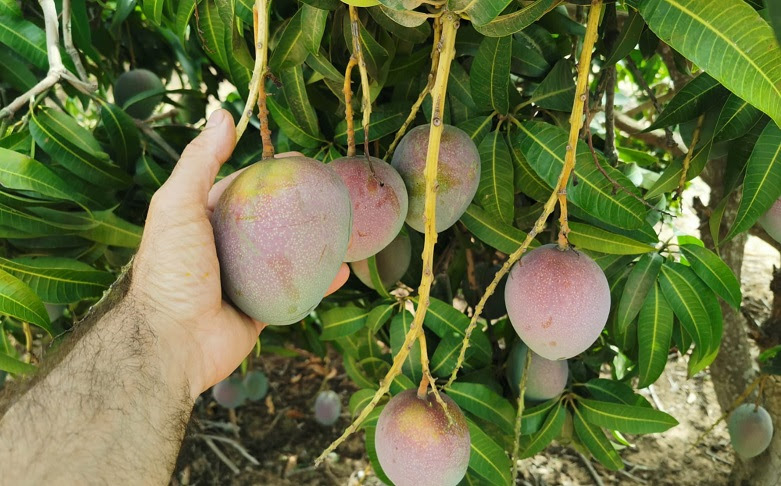
I said to Mr. MBENGUE, “This year, your fruits are protected from fruit flies. There is no reason for early harvest.
Now, you have no reason to compete with the other farmers who sell their fruits at a low price, as they are not protected and must sell before the rains. You will win in that competition far in front.
Unlike the others, you can wait for the rains, let them grow your fruits. If you wait another week or two, you will have much better quality mangoes. With some of the fruits, you can wait for over a month!
The “Doctor’s Advice” to you is to go home, relax and let your mangoes grow and improve their quality characteristics a bit more.”
It takes another thirty minutes for Mr. MBENGUE to relax a little, gain back his confidence, and be ready to exit the orchard.
I think to myself, “Great, it seems that Mr. MBENGUE has internalized the fact that his fruits are protected, and now he can easily and safely wait a week or two with the beginning of the early harvest.”
While I compliment myself on how convinced Mr. MBENGUE was by my excellent explanations, Mr. MBENGUE turns to me in a plea of a convict who asks the judge to reassess his sentence.
He then shyly asks if it is possible to start the harvest tomorrow. Inside me, I smile, then I look at Mr. MBENGUE and gently say, “We’ll start the harvest when your mangoes reach the right quality.”
STOP BEING AFRAID OF RAIN
I know one thing from many years of working with farmers; they follow and trust their own experience and believe in what they can see and touch.
It will take time and repeated experience for Mr. MBENGUE and his friends to believe and grasp the meaning of having a complete top-class level of fruit fly protection.
Mr. MBENGUE and his friends need ‘Time’ and ‘Positive experience’ to heal from decades of painful suffering.
Unlike the technology that is now changing the ecosystem in Mr. MBENGUE’s orchards, the mental process of change that the farmers are experiencing is prolonged; it takes time before it “sinks” and assimilates into the farmers’ daily routines and actions before it becomes “the new norm.”
You see, technological change can swipe you overnight, but changing peoples’ minds, thoughts, and behaviors takes a far more extended period. This is true for all of us, not just for Mr. MBENGUE and his fellow mango growers.
For the moment, Mr. MBENGUE is waiting for the harvest because although he is worried, HE TRUSTS ME, personally.
I am waiting for the day that Mr. MBENGUE will learn to trust the Green Valley FFCTZ protocol and will not need to see me around to feel security, knowing the results are as good as can be.
Soon a day will come, and Mr. MBENGUE will see the rain as his friend and not an enemy. Mr. MBENGUE will wait with the harvest, and the rain will help him grow his mangoes to the desired size.
One day, Mr. MBENGUE will harvest without the continuous fear of what will happen if the rains come early this year and the horrific impact on his family’s livelihood.
One day, maybe this year, Mr. MBENGUE will check his financials and see that he has earned tens and perhaps even hundreds of percent more than previous years.
Today, millions of farmers like Mr. MBENGUE fear the rain. For those farmers, rains associate with losing their annual income for the unbeatable fruit flies.
Today, farmers prefer to harvest their unripe produce early, knowing they will receive a low price per kg and still losing 50%, then waiting a bit longer and losing 100%.
Why don’t farmers harvest the mangoes even earlier and hence avoid all risk of an infestation? Because that would be so immature that no one would like to eat those fruits.
Fortunately, today we have the ability (technology, tools, protocols, methods, experience, knowledge, etc.) to help farmers stop fearing the rain and start seeing it as a friend.
We can’t do everything by ourselves, but we can start by trusting others to help us cross one bridge at a time. The attitude of trusting others to help us, often in scarcity, can lead us to a new, prosperous reality.
TAKEAWAY
» Changing peoples’ minds and behavior is complex and lengthy.
» Technological change is swift.
» To fully exploit a technological change, there is a need for human accompaniment and methodology.
» Farmers need and want professional and mental support.
» The Green Valley “Package” of technologies, services, models, and protocols, is needed and welcomed by farmers, who view it as a gate-for-change and the way or reaching a better future.
Please, if you found value in this article, it would mean a lot to me if you send me a comment and share it with your friends.
Subscribe here for access to exclusive content – SUBSCRIBE.
